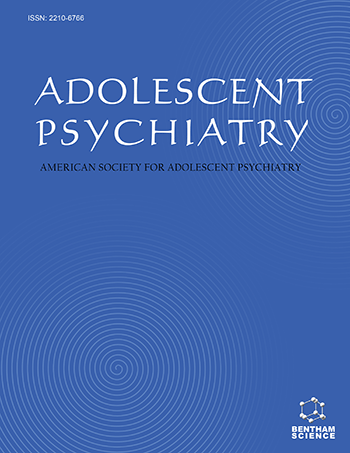Abstract
Background: Transitional Age Youth (TAY), the period between 15-25 years old, is now recognized as a unique developmental stage and a highly vulnerable time period for the onset of Serious Mental Illness (SMI).
Objective: The study aimed to inform readers about TAY with SMI to improve recognition of their developmental needs and improve patient care.
Methods: The authors describe their work with TAY experiencing SMI on inpatient psychiatric units by citing case examples that illustrate individual treatment issues, the level of family involvement in care, and social/systems based practice.
Results: TAY patients with SMI are more likely to adhere to ongoing psychiatric care when their developmental needs are addressed while in an acute inpatient setting.
Conclusion: Focusing on mental health needs of TAY while applying a developmental perspective can improve patient care and compliance to treatment.
Keywords: Transitional Age Youth (TAY), Serious Mental Illness (SMI), developmental perspective, biopsychosocial formulation, treatment issues, clinical case.
Adolescent Psychiatry
Title:Transitional Age Youth with Serious Mental Illness: High Acuity Patients Requiring Developmentally Informed Care in the Inpatient Hospital Setting
Volume: 8 Issue: 3
Author(s): Timothy Van Deusen*, Cynthia Wilson, Hyun Jung Kim, Zheala Qayyum, Hun Millard and Susan Parke
Affiliation:
- Department of Psychiatry, Yale School of Medicine, West Haven Mental Health Clinic, 270 Center St., West Haven, CT,United States
Keywords: Transitional Age Youth (TAY), Serious Mental Illness (SMI), developmental perspective, biopsychosocial formulation, treatment issues, clinical case.
Abstract: Background: Transitional Age Youth (TAY), the period between 15-25 years old, is now recognized as a unique developmental stage and a highly vulnerable time period for the onset of Serious Mental Illness (SMI).
Objective: The study aimed to inform readers about TAY with SMI to improve recognition of their developmental needs and improve patient care.
Methods: The authors describe their work with TAY experiencing SMI on inpatient psychiatric units by citing case examples that illustrate individual treatment issues, the level of family involvement in care, and social/systems based practice.
Results: TAY patients with SMI are more likely to adhere to ongoing psychiatric care when their developmental needs are addressed while in an acute inpatient setting.
Conclusion: Focusing on mental health needs of TAY while applying a developmental perspective can improve patient care and compliance to treatment.
Export Options
About this article
Cite this article as:
Van Deusen Timothy*, Wilson Cynthia, Kim Jung Hyun, Qayyum Zheala, Millard Hun and Parke Susan, Transitional Age Youth with Serious Mental Illness: High Acuity Patients Requiring Developmentally Informed Care in the Inpatient Hospital Setting, Adolescent Psychiatry 2018; 8 (3) . https://dx.doi.org/10.2174/2210676608666180820153318
| DOI https://dx.doi.org/10.2174/2210676608666180820153318 |
Print ISSN 2210-6766 |
| Publisher Name Bentham Science Publisher |
Online ISSN 2210-6774 |
 43
43
- Author Guidelines
- Graphical Abstracts
- Fabricating and Stating False Information
- Research Misconduct
- Post Publication Discussions and Corrections
- Publishing Ethics and Rectitude
- Increase Visibility of Your Article
- Archiving Policies
- Peer Review Workflow
- Order Your Article Before Print
- Promote Your Article
- Manuscript Transfer Facility
- Editorial Policies
- Allegations from Whistleblowers
Related Articles
-
Summaries of Selected Presentations from the 2012 Annual Meeting of the American Society for Adolescent Psychiatry
Adolescent Psychiatry Remembrance and Historicization: The Transformation of Individual and Collective Trauma and its Transgenerational Consequences
Adolescent Psychiatry The Assessment of Attenuated Psychotic Symptoms in Adolescents: Concepts, Practical Approaches and Prediction of Risk
Adolescent Psychiatry Caregiver Involvement in Sexual Risk Reduction with Substance Using Juvenile Delinquents: Overview and Preliminary Outcomes of a Randomized Trial
Adolescent Psychiatry Assessing Personality Disorders in Adolescence: A Validation Study of the IPOP-A
Adolescent Psychiatry Opening Pandora’s Box: The Importance of Trauma Identification and Intervention in Hospitalized and Incarcerated Adolescent Populations
Adolescent Psychiatry Impact of Religious Retreats on Disruptive Behaviors in Incarcerated Youth
Adolescent Psychiatry The Shame Ethic in Adolescent Psychotherapy
Adolescent Psychiatry Using Digital and Social Media Metrics to Develop Mental Health Approaches for Youth
Adolescent Psychiatry Psychopharmacological Interventions for Adolescents with Eating Disorders
Adolescent Psychiatry Diagnosis and Treatment of Common Sleep Disorders in Adolescence
Adolescent Psychiatry Borderland and Borderline: Understanding and Treating Adolescent Migrants in Crisis
Adolescent Psychiatry Adolescent Peer Victimization and PTSD Risk
Adolescent Psychiatry Problematic Internet Use: A Case of Social Media Addiction
Adolescent Psychiatry Editorial: The Art and Science of Adolescent Psychiatry and Psychology
Adolescent Psychiatry Stress-related Risk Factors for the Maintenance of Major Depression in Adolescent Girls
Adolescent Psychiatry Transition from Children’s to Adult Services for Patients with ADHD: A Model of Care
Adolescent Psychiatry “Ride or Die”: Therapeutic Interventions for Retaliatory Violence Among Youth
Adolescent Psychiatry Global Child and Adolescent Mental Health Needs: Perspectives from a National Tertiary Referral Center in India
Adolescent Psychiatry “Medical Clearance” of Psychiatric Patients in the Emergency Department
Adolescent Psychiatry

























